Dishwasher Help
Choose the best option below to describe the issue you are having with your dishwasher.
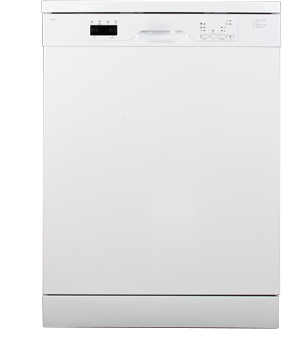
Thank you for using the Troubleshooter.
If there is anything else you would like help with today, simply click Finish to return to the home page of the diagnostics support tool.
For more support check out the product support page on https://bush-support.co.uk for manuals, interactive guides, live chat, FAQs and more.
Or watch our helpful how-to videos on the Bush Support YouTube channel
Sorry we haven't been able to fix this issue with the Troubleshooter today.
For further assistance, please close this window and call Technical Support using the number provided on the product support page or inside the user manual.
For more support check out the product support page on https://bush-support.co.uk
Here you can find manuals, interactive guides, live chat, FAQs and much more.
Or watch our helpful how-to videos on the Bush Support YouTube channel
When dishes / plates are incorrectly stacked, the dishwasher can become noisy when in use.
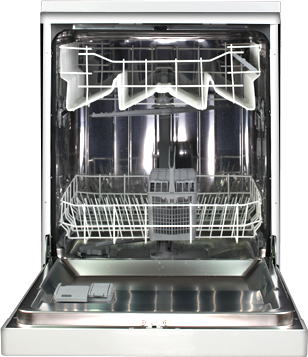
Please check your dishwasher manual for the correct positioning of dishes / plates.
Is the dishwasher less noisy?
If the dishwasher is placed on an unlevel surface , it can become excessively noisy when is use.
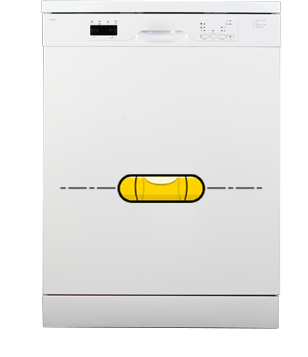
Place the dishwasher on a firm level surface.
Is the dishwasher less noisy now?
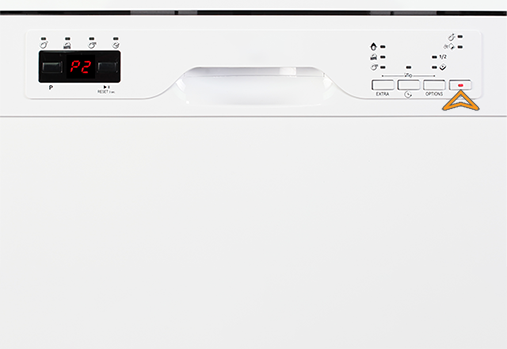
Open the door, then fully close the door. Select the desired wash cycle.
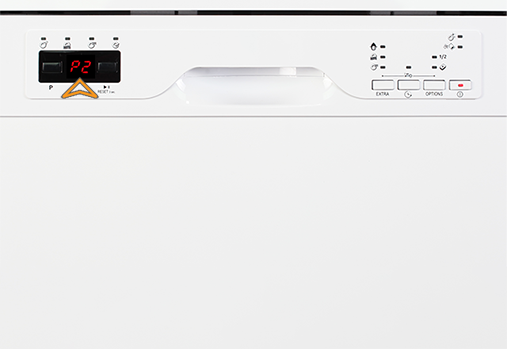
Is the dishwasher now filling with water?
Check that the mains water tap is turned on fully.
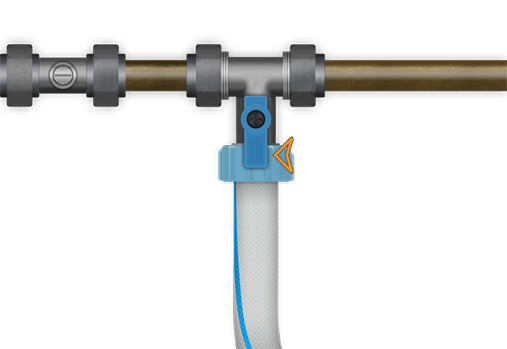
Is the dishwasher now filling with water?
If the water inlet hose is incorrectly fitted, bent or kinked or the water inlet filter is blocked, the dishwasher will not fill with water.
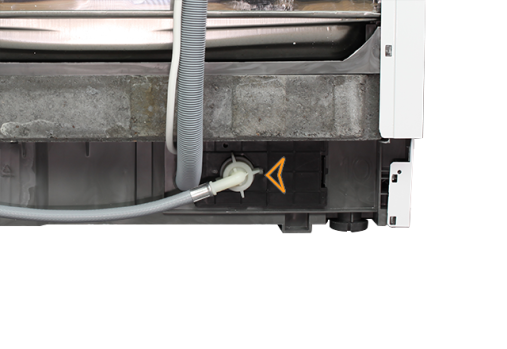
Check that the water inlet hose is correctly fitted and not bent or kinked.
Remove the water inlet filter and check for any blockages.
When checking the fitting of the inlet hose, ensure there isnt a cap on the end of the water inlet pipe.
Please check your dishwasher manual for this procedure.
Is the dishwasher now filling with water?
Open the door, then fully close the door. Select the desired wash cycle.

Is the water heating now?
If the filters are blocked in the dishwasher, this can cause the suction power of the motor to be signicantly reduced. As a result heating of the water may be impacted.

Remove, then check the filters and remove any blockages.
Please check your dishwasher manual for this procedure.
Is the water heating now?
An incorrectly fitted, bent or kinked inlet hose / drainage hose can stop the dishwasher from heating the water.
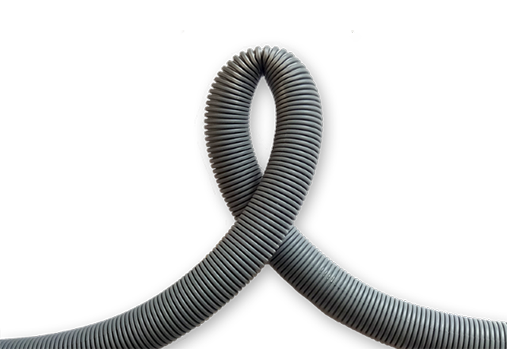
Check that the inlet hose / drainage hose is correctly fitted, and are not bent or kinked.
Please check your dishwasher manual for this procedure.
Is the water heating now?
If the dishwasher does not have adequate ventilation, the dishwasher can overheat.

Please check your dishwasher manual for the recommended clearance requirements.
Has the dishwasher stopped overheating?
Unless specified in your manual to do so, connecting the dishwasher to the hot water inlet can cause the dishwasher to overheat.
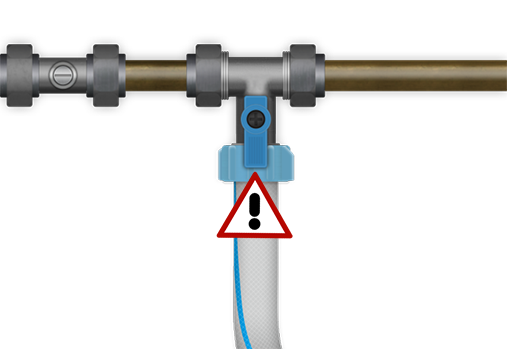
Is the dishwasher connected to the cold water inlet?
Please check your dishwasher manual for this procedure.
Has the dishwasher stopped overheating?
Some models of dishwasher have catches to stop the top drawer from falling out.

Check that the catch is in place to stop the drawer falling out.
Please check your dishwasher manual for this procedure.
Is the rack now secure?
If the rack is overloaded or unbalanced, the rack can fall off or not roll out.

Ensure the rack is not overloaded and the dishes are evenly placed on the rack.
Does the rack work as expected now?
Remove the rack, check for and remove any food or debris, then replace the rack.
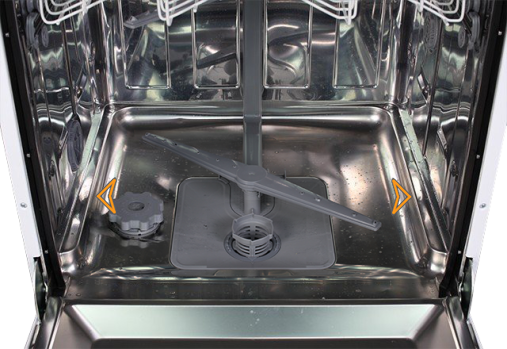
Please check your dishwasher manual for this procedure.
Is the rack now secure and roll out now?
Open the door, then fully close the door.
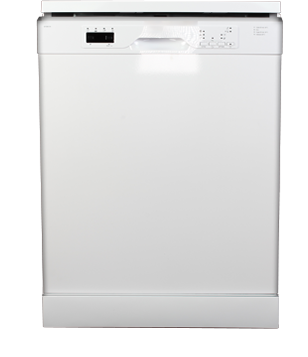
Has the dishwasher stopped leaking?
Overloading the dishwasher or poor stacking of the dishes can cause the dishwasher to leak.

Ensure the dishwasher is not over loaded and stacked correctly.
Please check your dishwasher manual for the suggested loading and stacking procedure.
Has the dishwasher stopped leaking?
A build up of food or debris around the door seal and cause water to leak through the door seal.
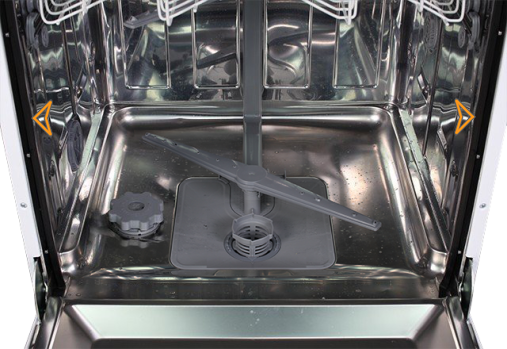
Check and clean the door seal.
Please check your dishwasher manual for the cleaning procedure.
Has the dishwasher stopped leaking?
Loose hose connections or blocked hoses on the back of the dishwasher, water inlet pipe and drainage hose can cause water to leak.

Ensure all the hoses are correctly fitted and free from any blockages.
Please check your dishwasher manual for this procedure.
Has the dishwasher stopped leaking?
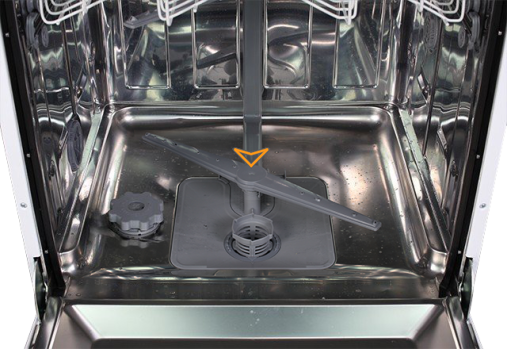
If the water inlet hose is incorrectly fitted, bent or kinked or the water inlet filter is blocked, the dishwasher will not fill with water and the spray arms will not move.

Check that the water inlet hose is correctly fitted and not bent or kinked.
Remove the water inlet filter and check for any blockages.
When checking the fitting of the inlet hose, ensure there isnt a cap on the end of the water inlet pipe.
Please check your dishwasher manual for this procedure.
Do the spray arms now move?
Having a low amount or no salt / rinse aid can cause a build up of lime scale preventing water draining away.

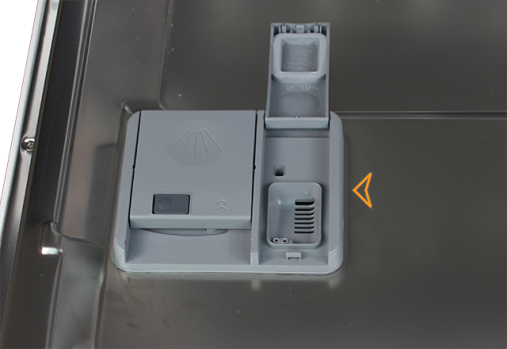
Check the level of the salt and rinse aid, then run another wash cycle.
Please check your dishwasher manual for this procedure.
Has the water now drained?
If the filters are blocked in the dishwasher, water can remain trapped, causing a build up of water inside the dishwasher.

Remove, and clean the filters .
Please check your dishwasher manual for this procedure.
Has the water now drained?
If the drain pump is blocked in the dishwasher, water can remain trapped, causing a build up of water inside the dishwasher.
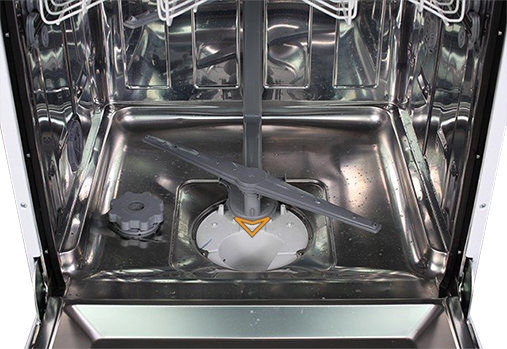
Remove the filters and check that the drain pump is not blocked.
Please check your dishwasher manual for this procedure.
Has the water now drained?
An incorrectly fitted, bent or kinked drainage hose can stop the dishwasher from draining the water.

Check that the drainage hose is correctly fitted, and is not bent or kinked.
Please check your dishwasher manual for this procedure.
Has the water now drained?
There are a couple ways the drainage hose could be connected.
Into a standpipe - the drainage pipe is pushed down into a vertical pipe that is connected to the mains.
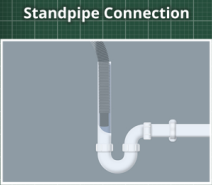
Onto a waste pipe spigot - the drainage hose is pushed firmly on to a drainage connection and is usually found under the sink.
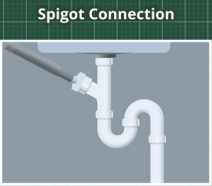
Please choose the correct drainage setup.
The standpipe may be blocked.

Remove the drainage hose from the standpipe and check for any blockages.
Ensure the drainage hose is not pushed all the way to the bottom of the standpipe as this can restrict the flow of water away from the dishwasher.
Please check your dishwasher manual for this procedure.
Has the water now drained?
The spigot connection to the drain may be blocked, or if this is the first time there has been a dishwasher attached to the waste pipes there may be a cap covering the opening.

Remove the main waste connection and check for any blockages or cap.
Please check your dishwasher manual for this procedure
Has the water now drained?

Thank you for using the Troubleshooter.
If there is anything else you would like help with today, simply click Finish to return to the home page of the diagnostics support tool.
For more support check out the product support page on https://bush-support.co.uk for manuals, interactive guides, live chat, FAQs and more.
Or watch our helpful how-to videos on the Bush Support YouTube channel
Sorry we haven't been able to fix this issue with the Troubleshooter today.
For further assistance, please close this window and call Technical Support using the number provided on the product support page or inside the user manual.
For more support check out the product support page on https://bush-support.co.uk
Here you can find manuals, interactive guides, live chat, FAQs and much more.
Or watch our helpful how-to videos on the Bush Support YouTube channel
Heavy food deposits left on dishes & cutlery can cause marks being left.
Rinse the dishes & cutlery under the tap to remove heavy food deposits before placing into the dishwasher.
Are there still marks on the dishes & cutlery?
Overloading the dishwasher, can cause marks being left on dishes & cutlery.

Ensure the spray arms move freely and do not get caught on items being washed.
Are there still marks on the dishes & cutlery?
Dirty or blocked spray arms can result in a poor wash result, leaving marks on dishes & cutlery.

Remove the spray arms and check for any blockages.
Please check your dishwasher manual for this procedure.
Are there still marks on the dishes & cutlery?
Using the incorrect rinse aid dosage can cause poor cleaning results leaving marks on dishes & cutlery.

Please check your dishwasher manual for the correct amount of rinse aid dosage required.
Are there still marks on the dishes & cutlery?
If the filters are blocked in the dishwasher, this can result in leaving marks on the dishes & cutlery.

Remove, then check the filters and remove any blockages.
Please check your dishwasher manual for this procedure.
Are there still marks on the dishes & cutlery?
If the water inlet hose is incorrectly fitted, bent or kinked or the water inlet filter is blocked, the dishwasher will not properly fill with water.

Check that the water inlet hose is correctly fitted and not bent or kinked.
Remove the water inlet filter and check for any blockages.
Please check your dishwasher manual for this procedure.
Are there still water marks on the dishes & cutlery?
The salt compartment being empty or the lid not being fitted properly can cause spots or film on the dishes.

Please check your dishwasher manual for filling the salt compartment prodedure.
Are the dishes now spot / film free?
Having the incorrect water softner setting can cause spots or film on the dishes.
Please check your dishwasher manual for the correct water softner setting.
Are the dishes now spot / film free?
Using the incorrect rinse aid dosage can cause spots or film on the dishes.

Please check your dishwasher manual for the correct amount of rinse aid dosage required.
Are the dishes now spot / film free?
Check the correct programme has been selected, then press the start button.

Are the cleaning results still poor?
Heavy food deposits left on dishes & cutlery can cause poor cleaning results
Rinse dishes & cutlery under the tap to remove heavy food deposits before placing into the dishwasher.
Are the cleaning results still poor?
Overloading the dishwasher, can cause poor cleaning results.

Ensure the spray arms move freely and do not get caught on items being washed.
Are the cleaning results still poor?
Remove the spray arms and check for any blockages

Please check your dishwasher manual for this procedure.
Are the cleaning results still poor?
Using the incorrect rinse aid dosage can cause poor cleaning results.

Please check your dishwasher manual for the correct amount of rinse aid dosage required.
Are the cleaning results still poor?
Check that the mains water tap is is turned on fully.

Are the cleaning results still poor?
If the filter are blocked in the dishwasher, cleaning results will become poor.

Remove, then check the filters and remove any blockages.
Please check your dishwasher manual for this procedure.
Are the cleaning results still poor?

Check that the water inlet hose is correctly fitted and not bent or kinked.
Remove the water inlet filter and check for any blockages.
Please check your dishwasher manual for this procedure.
Are the cleaning results still poor?
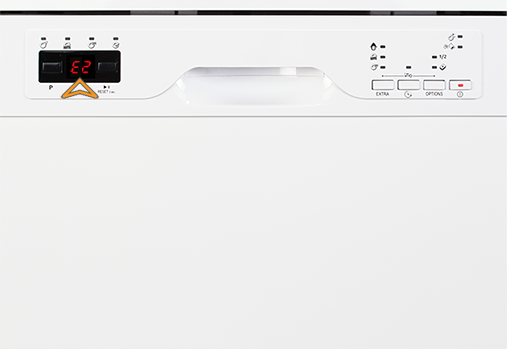
Check that the dishwasher is plugged in and turned on at the mains.
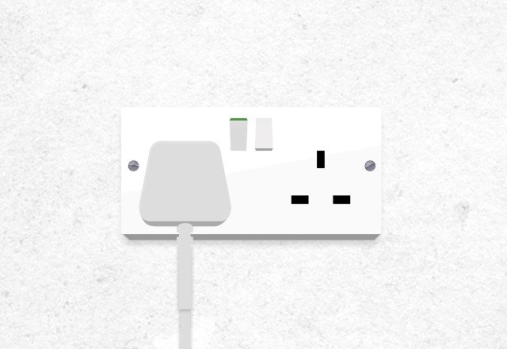
Is the dishwasher still stopping during a cycle?
To cross test the power supply try another electrical appliance on the same mains socket.
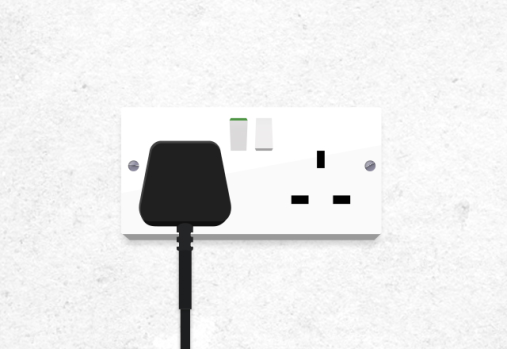
Does the other appliance power on?
Try changing the fuse on the plug. Always use a new fuse with the same Amp rating as the fuse being removed.
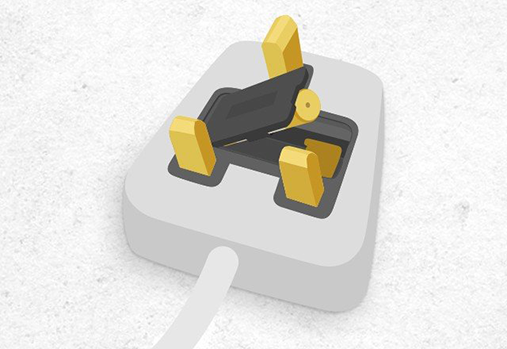
Do you have power?
Check to see if any RCD breakers have been tripped inside your Fusebox.
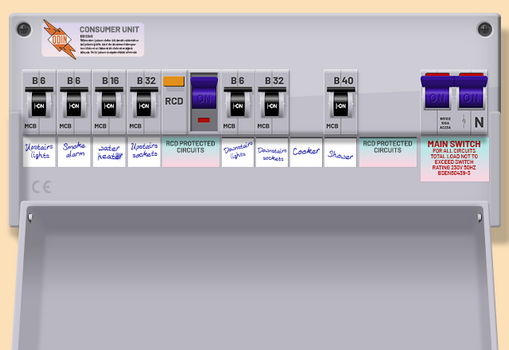
Have any switches been tripped?
Switch the tripped fuse back on.

Does it stay in the ON position?
If the filter are blocked in the dishwasher, cleaning results will become poor.

Remove, then check the filters and remove any blockages.
Please check your dishwasher manual for this procedure.
Is the dishwasher still stopping during a cycle?
Remove the spray arms and check for any blockages

Please check your dishwasher manual for this procedure.
Is the dishwasher still stopping during a cycle?
Check that the mains water tap is turned on fully.

Is the dishwasher still stopping during a cycle?
If the tablet size is too big the dispenser will not close.
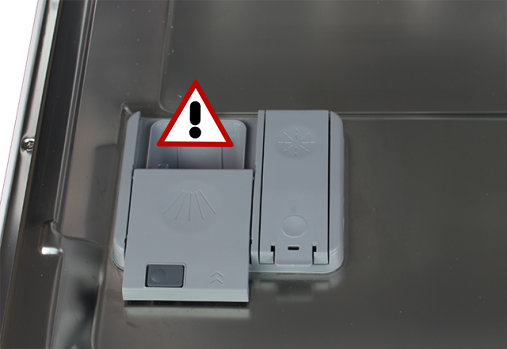
Check the tablet size.
Does the tablet dispenser now click into place when closing and remain closed?
If there is food or debris caught in the tablet dispenser, the tablet dispenser will not fully close.
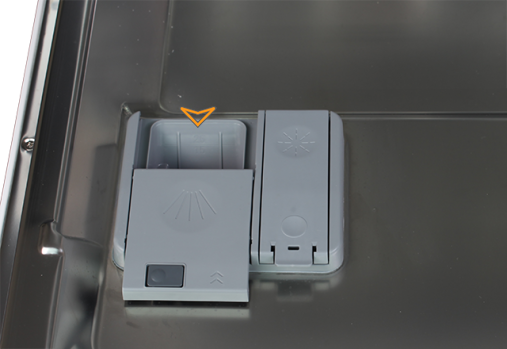
Remove and food or debris in and around the tablet dispenser.
Does the tablet dispenser now click into place when closing and remain closed?

Please check your dishwasher manual for this procedure.
Does the tablet dispenser now open?
Choose the best option below to describe the issue you are having with your dishwasher.

Thank you for using the Troubleshooter.
If there is anything else you would like help with today, simply click Finish to return to the home page of the diagnostics support tool.
For more support check out the product support page on https://bush-support.co.uk for manuals, interactive guides, live chat, FAQs and more.
Or watch our helpful how-to videos on the Bush Support YouTube channel
Sorry we haven't been able to fix this issue with the Troubleshooter today.
For further assistance, please close this window and call Technical Support using the number provided on the product support page or inside the user manual.
For more support check out the product support page on https://bush-support.co.uk
Here you can find manuals, interactive guides, live chat, FAQs and much more.
Or watch our helpful how-to videos on the Bush Support YouTube channel
Check that the dishwasher is plugged in and turned on at the mains.

Do you have power?
To cross test the power supply try another electrical appliance on the same mains socket.

Does the other appliance power on?
Try changing the fuse on the plug. Always use a new fuse with the same Amp rating as the fuse being removed.

Do you have power?
Check to see if any RCD breakers have been tripped inside your Fusebox.

Have any switches been tripped?
Switch the tripped fuse back on.

Does it stay in the ON position?

Check that the dishwasher is plugged in and turned on at the mains.

Is the control panel now responsive?
Some models of dishwasher have a child lock option, check that the child lock is not enabled.
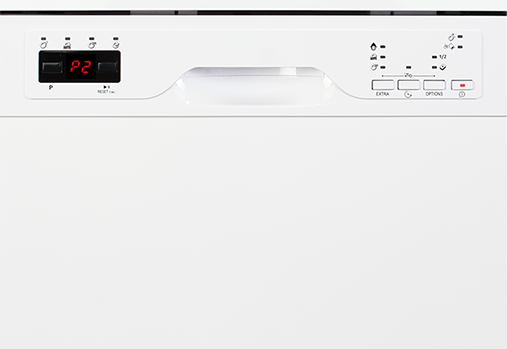
Please check your dishwasher manual for this procedure.
Is the control panel now responsive?
Switch the dishwasher off at the mains and remove the plug. Leave for 5 minutes. Plug the dishwasher back into the mains and switch on.
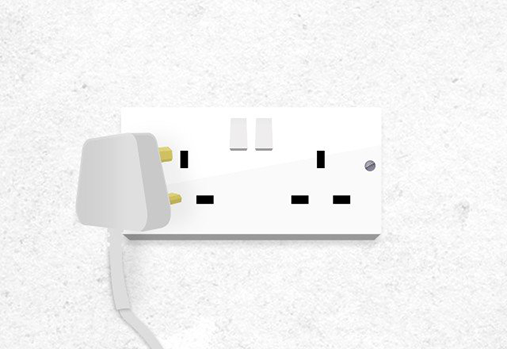
Is the control panel now responsive?
To cross test the power supply try another electrical appliance on the same mains socket.

Does the other appliance power on?
Try changing the fuse on the plug. Always use a new fuse with the same Amp rating as the fuse being removed.

Do you have power?
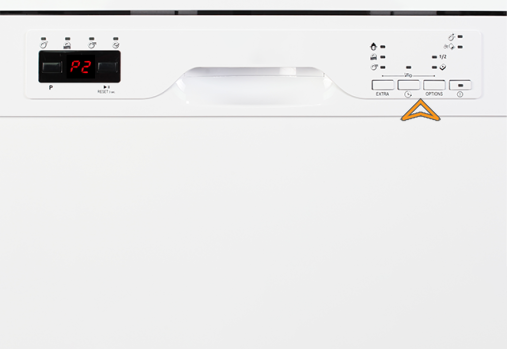
Check to see if any RCD breakers have been tripped inside your Fusebox.

Have any switches been tripped?
Switch the tripped fuse back on.

Does it stay in the ON position?

If a delay timer has been set, the dishwasher will not commence until the timer has finished.
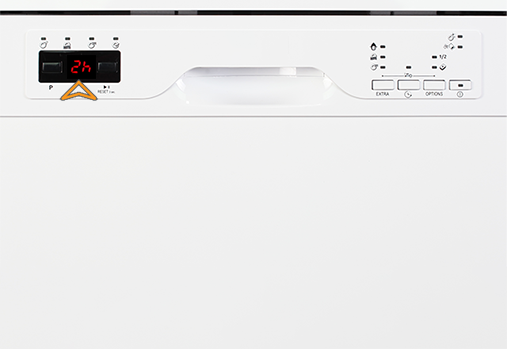
Check if a delay timer has been set.
Please check your dishwasher manual for this procedure.
Does the wash programme now start?
Check the door is fully closed.

Open the door, then close it again.
Does the wash programme now start?
Check that the correct wash programme has been selected, then press the start button.

Does the wash programme now start?

Turn the dishwasher off at the mains and remove the plug.

Whilst removing the plug, hold down the start/pause button for 10 seconds.
Leave for 30 seconds, then plug the dishwasher back into the mains and turn the plug on.
Does the wash programme now start?
To cross test the power supply try another electrical appliance on the same mains socket.

Does the other appliance power on?
Try changing the fuse on the plug. Always use a new fuse with the same Amp rating as the fuse being removed.

Do you have power?
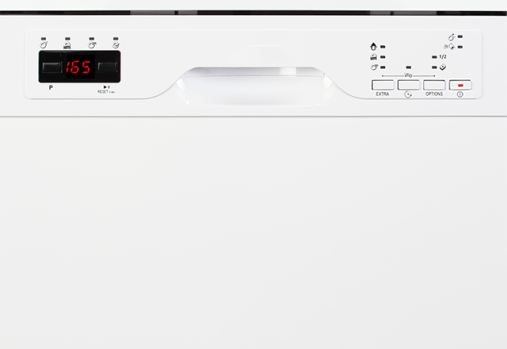
Check to see if any RCD breakers have been tripped inside your Fusebox.

Have any switches been tripped?
Switch the tripped fuse back on.

Does it stay in the ON position?

Check that the mains water tap is turned on fully.

Does the dishwasher programme start now?